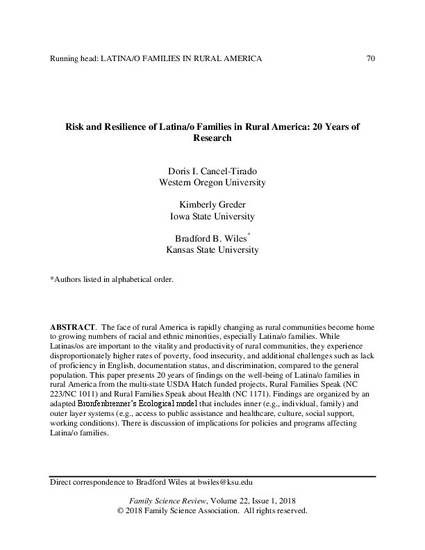
The face of rural America is rapidly changing as rural communities become home to growing numbers of racial and ethnic minorities, especially Latina/o families. While Latinas/os are important to the vitality and productivity of rural communities, they experience disproportionately higher rates of poverty, food insecurity, and additional challenges such as lack of proficiency in English, documentation status, and discrimination, compared to the general population. This paper presents 20 years of findings on the well-being of Latina/o families in rural America from the multi-state USDA Hatch funded projects, Rural Families Speak (NC 223/NC 1011) and Rural Families Speak about Health (NC 1171). Findings are organized by an adapted Bronfenbrenner’s Ecological model that includes inner (e.g., individual, family) and outer layer systems (e.g., access to public assistance and healthcare, culture, social support, working conditions). There is discussion of implications for policies and programs affecting Latina/o families.
Available at: http://works.bepress.com/kimberly_greder/55/

This article is published as Doris I. Cancel-Tirado, Kimberly Greder and Bradford B. Wiles, Risk and Resilience of Latina/o Families in Rural America: 20 Years of Research. Family Science Review. 2018, 22(1); 70-90. Posted with permission.